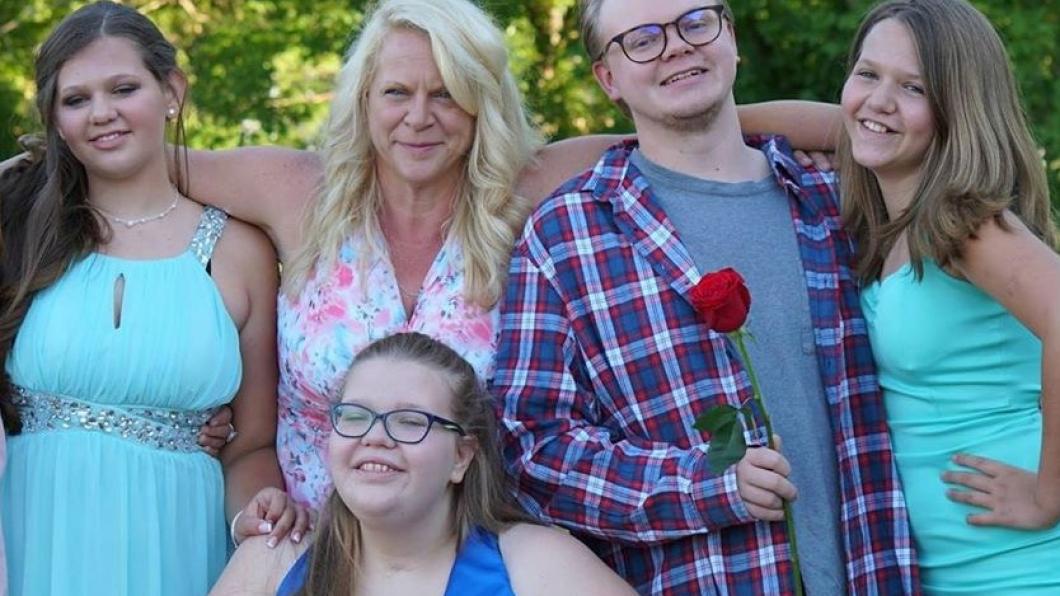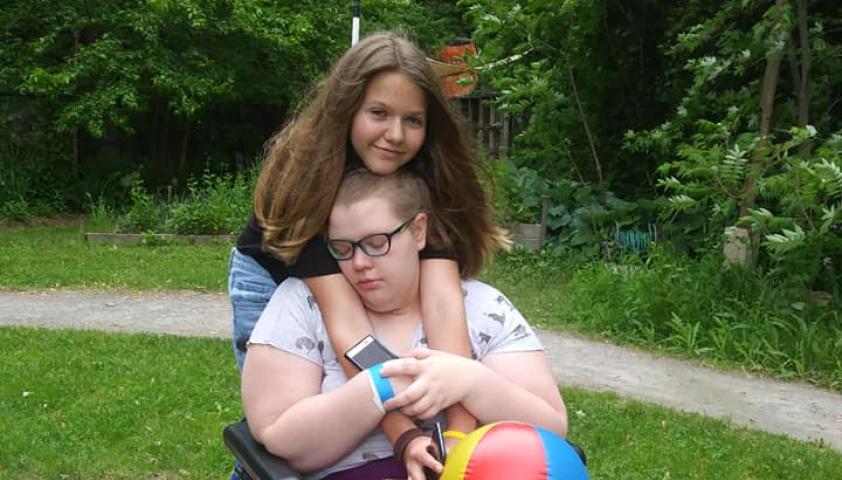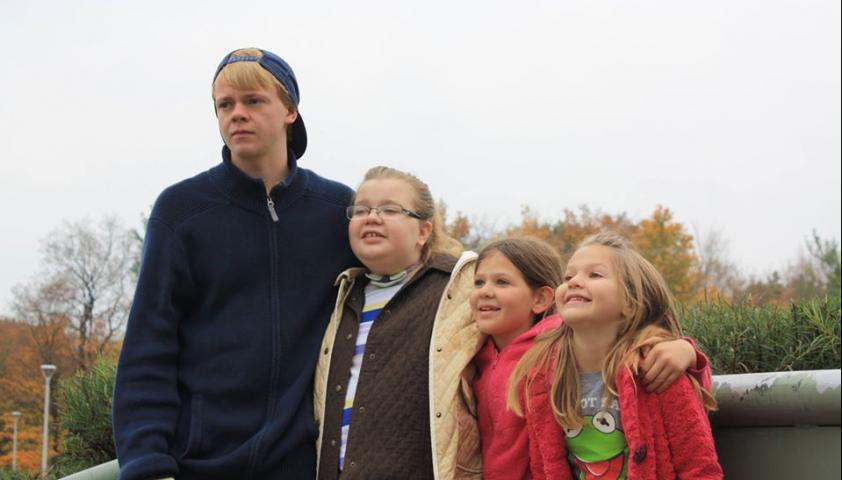
One family and one rare disease
Most people would assume having three teenage daughters, plus a young adult son would be a handful, and Christine admits it is—but she didn’t expect it would be like this.
“I have four kids and they are now 13, 15, 17 and 22. I remember when the girls were little, thinking, what am I going to do with like 11, 13 and 15?” Christine starts off.
“But it's been a completely different journey than I ever could have imagined and so some days I feel like I'd give anything for it to be more typical.”
The beginning
One day, at the age of nine, Emma—Christine’s second-born—went into respiratory distress and lost movement in her lower limbs.
She was rushed to the ICU and was originally diagnosed with Guillian-Barre syndrome—a diagnosis where the immune system attacks itself.
But she didn’t actually have it.
“Then they diagnosed her with myasthenia gravis and treated her with plasmapheresis and we started to see some improvement,” says Christine. “But then they were watching her brain die. She just kept getting more lesions. Her brain stem is all lesion and her basal ganglia has all lesions. There was no function there at all. They didn’t realize it was Leigh disease until a year after her crash.”
Mitochondrial DNA-associated Leigh disease is a rare diagnosis that affects the nervous system, affecting about 1 in 100,000 to 140,000.
In this diagnosis, the mitochondria aren't healthy: the conversion of nutrients to energy doesn't happen properly in the cell.
And, for Emma, that means she’s tired all the time.

Getting her life back
Christine recalls how doctors had told her to prepare for the worst.
“It was rapid and catastrophic and at that point she was in a coma. And they put her trachea in. But one neurologist at the big meeting where they were telling us there was nothing they could do and we should say our goodbyes. One doctor said, ‘Who knows, maybe she can end up at Bloorview.’”
And it was there she got everything back.
When Emma first arrived at Holland Bloorview, she was on a ventilator 24/7, had a tracheostomy put in, couldn't swallow, even her own saliva, was fed through a g-tube, and couldn't sit, stand, walk, or speak.
“She had to be positioned in bed at a certain angle because she had acquired a bunch of compression fractures because of the way she was lying,” says Christine. "But within the first day here, they did all kinds of great stuff."
Through Holland Bloorview, Emma was supported to sit, then stand, then take steps, move her jaw and eyes, and was fitted with a wheelchair and a walker.
For Christine, one of her favourite memories during the rehabilitation journey was when Emma said, ‘Mummy’ one day before physiotherapy after working hard with the respiratory therapist to speak around her trache.
Now 17, Emma talks a mile a minute, can smile so bright, and learned to swallow again so she can eat on her own.
At one point, Emma was also recruited as a Holland Bloorview ambassador, after she was overheard singing in the room with her music therapist.
From then on, it was a whirlwind getting to represent the hospital at off-site events.
The family’s diagnosis
But, the journey didn't end there.
After Emma had returned home, Christine’s youngest began having seizures.
“Not you too,” Christine recalls as she held her daughter Rosie in her arms the day of her first seizure.
“I had read all kinds of things about mitochondrial disease and knew that it was maternally inherited. But, because everyone else was okay it seemed like this was just a random. So once Rosie started having seizures, everyone got tested.”
Her younger daughters Rosie and Rachel were given the diagnosis in 2016, her son Drew in 2017.
Christine has it too.
“I'm at 28 percent, usually anything under 30 means symptoms are really mild,” she says.
“But I feel guilty every minute of every day. I have an incredible burden of guilt and I cry about it every day. There's not a day that goes by that I don't cry. The way I try to control it is to remind myself I didn't know. And if I'd known, I wouldn't have done this to them. And then my brain goes, "How on earth could this planet be here without those people on it?" Because each of them has such a unique, beautiful personality and it's not always easy but I love who they are and what they have to offer.”

How they’re managing
“I used to feel desperate for, ‘Okay, just tell me what to expect. Tell me how long she's going to live and what it's going to look like when she dies.’ I don't do that anymore because Emma has really outlived what they thought in 2011 and 2012.”
That's why, in between the revolving door of nurses and support workers in their home, the family focuses on infusing humour into their lives each and every day.
“There’s pretty much always someone laughing,” she says. “I try to make sure that everyone’s got something that they love to do.”
Rosie currently pursues art, for Rachel it’s music, Drew spends most of his days supervising a book store, and Emma, Christine adds, spends most of her days passionately watching YouTube family vlogs, is a "cat-mom" to her pride and joy, Milo, and adores spending time with her her siblings and extended family.
And one day, Christine hopes even more can be done.
“A rare disease is tricky because it's not where funding goes for research, for effective treatments,” she says.
“And part of what Rare Disease Day is about is it lets us bring attention to all these diagnoses. Yeah, there may only be three people who have that in the world, but they need the resources too.”